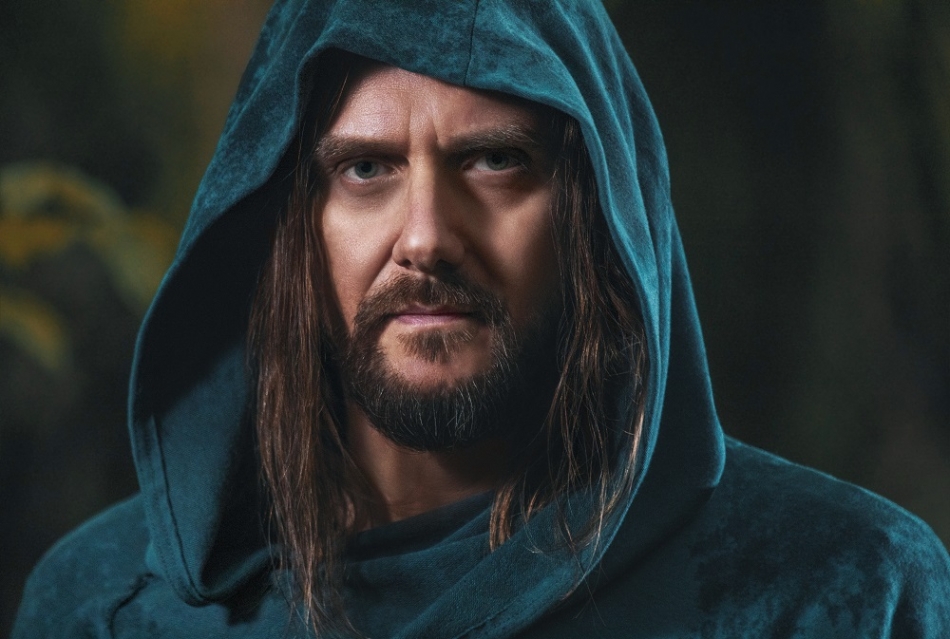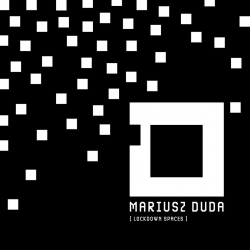As the architect behind Polish progressive rock/metal quartet Riverside and his own more ambient and experimental venture, Lunatic Soul, Mariusz Duda repeatedly astounds as an exceptional creator and performer. In addition to demonstrating his dexterity as an incredible songwriter, musician, and singer, those projects also reveal his knack for fashioning programmed soundscapes that are as idiosyncratic as they are arresting. It’s precisely that side of his artistry that’s highlighted most on his latest undertaking, Lockdown Spaces. Composed and performed entirely by him, it feels fairly aligned with the most digital and abstract Lunatic Soul compositions; thus, it’s presents a sufficiently individualized new persona that also includes enough Duda emblems to be recognizable and beloved.
According to Duda, the “dark, minimalist, [and] claustrophobic” album was—as the title suggests—inspired by “life in quarantine.” He adds: “At the beginning of this year, I was convinced that I will be releasing only single ‘bright songs’ as Mariusz Duda. Now I know that, apart from [those] songs, I will also release ‘dark albums.’ [This one] came to my mind during recording sessions for the new Lunatic Soul. I decided that in order to intensify the ‘lockdown effect,’ I would play only electronic instruments here, with an addition of samples and voice. ” It was recorded at Serakos Studio in Warsaw earlier this month, with Magda and Robert Srzedniccy overseeing the process. Also, the cover was designed by another icon in the genre, Hajo Muller. Truth be told, Lockdown Spaces doesn't equal Duda’s past sequences—not that it’s supposed to—but it certainly captures enough of the ingenuity, honesty, and tunefulness of his most chilling and confessional side to be a worthwhile addition to his catalog.
The record begins with one of its strongest entries, “Isolated,” a purposefully repetitious collage of rotating digital beeps juxtaposed by a mournful woodwind-like motif. Eventually, heavier and more foreboding tones are added his chants add a humanizing layer. Like much of the LP, it’s more of a wordless interpretation of mood and meaning than a proper song (which I mention just for clarification), but it nonetheless entices and intrigues while feeling quintessentially Duda. Other pieces—such as the more flamboyant and varied “Bricks,” the relatively dissonant and gloomy “Waiting,” and the cosmically motivating “Thought Invaders”—fall into the same camp, with each offering distinguished routes and timbres.
Elsewhere, Duda veers into slightly more traditional structures. For example, “Lockdown Spaces” sees him employing ominous whispers and quirky yet disturbing sound effects to evoke his masterfully unsettling Walking on a Flashlight Beam. In contrast, the synth-heavy “Pixel Heart” is comparatively uplifting and serene, with calming verses cascading by halfway in. As for “Unboxing Hope,” it’s likely the most fully developed in terms of instrumentation, and there’s a relentless energy and chameleonic nature to it that keeps it fascinating.
Lockdown Spaces is a testament to how much potential there is in musicians using the current pandemic to try out new things and express common sentiments. Again, it’s not on the same level as Duda’s other work, but that’s not its intention. Rather, it allows him to further investigate a side of his creativity that wouldn’t fit beneath the Riverside or Lunatic Soul umbrella—at least not to this extent—while also finding catharsis by doing what he always does so well: sharing deeply personal concerns that at least some listeners will identify with. If you’re already a fan and are open to a moderately new layer of Duda’s artistry, Lockdown Spaces will surely surprise and satisfy.
You can check out the entire album below:


